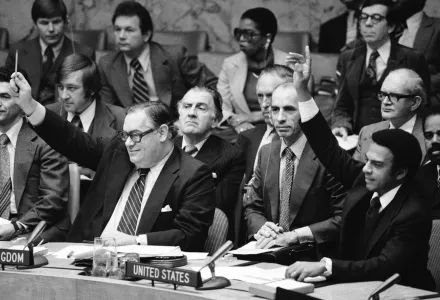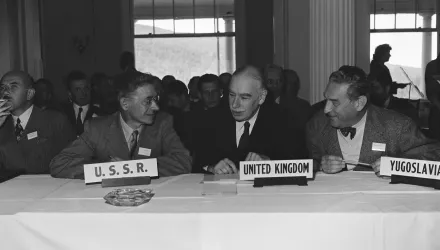International Security
International Security is America's leading peer-reviewed journal of security affairs.
International Security
Article
from
International Security

Summary
States frequently acquire proof that other states have violated norms. Yet, existing theories do not fully explain how states that catch others red-handed use such proof to coerce wrongdoers. Four case studies of nuclear proliferation—Taiwan, Libya, South Africa, and North Korea—probe a novel theory of how discoverers may conceal proof of wrongdoing, share such proof with other actors privately, or reveal their proof to the world. These cases illustrate how coercive power affects states’ decision-making regarding use of proof.
Recommended citation
Want to read more?
The full text of this publication is available in the link below.
Up Next





